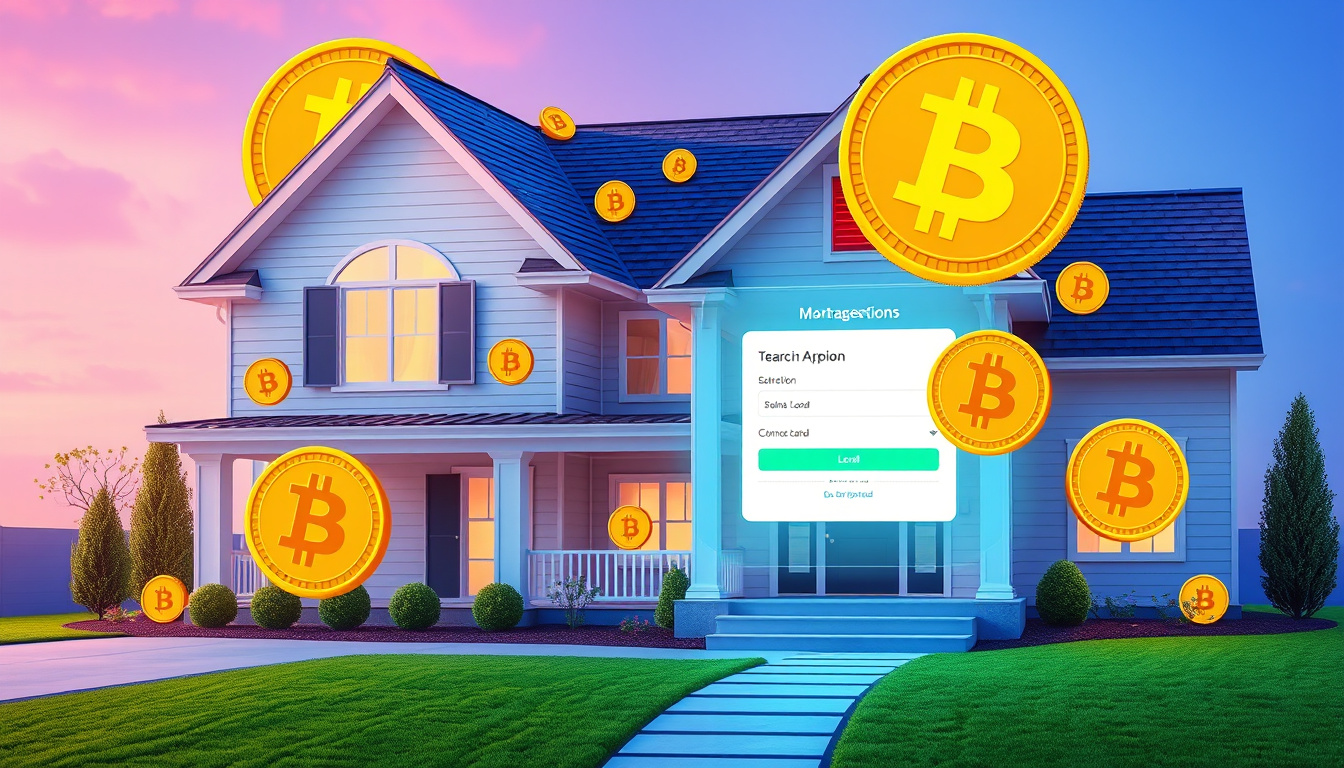In a rapidly evolving financial landscape, the intersection of cryptocurrency and real estate is reshaping homeownership in the United States. With the recent announcement from the Federal Housing Finance Agency permitting the use of Bitcoin in mortgage applications, prospective homebuyers are presented with a revolutionary opportunity. As housing prices continue to soar, frequently putting homeownership out of reach for younger individuals, Bitcoin is emerging as a potential solution. This article explores how Bitcoin is not only changing the dynamics of mortgage applications but also offering a new avenue for those seeking to secure their dream homes.
Crypto News, Articles and Reports

Key Takeaways
- Bitcoin is now an accepted form for mortgage applications in the U.S., unlocking new opportunities for homebuyers.
- As housing costs rise, Bitcoin's increasing value offers a potential solution for affordability in homeownership.
- The Federal Housing Finance Agency's endorsement of Bitcoin reflects a significant shift in the real estate and cryptocurrency sectors.
The Impact of Bitcoin on Mortgage Applications
In recent years, Bitcoin has rapidly transformed from a niche cryptocurrency into a formidable asset class, and its implications have begun to seep into various sectors, including real estate. The Federal Housing Finance Agency's recent decision to allow Bitcoin as a valid option for mortgage applications signifies a pivotal moment for potential homebuyers in the United States, particularly those feeling the pinch of rising housing costs. As millennials and Gen Z grapple with escalating home prices, often believing that homeownership is increasingly unattainable, Bitcoin offers a new pathway to property ownership. Interestingly, while home prices in conventional currency have surged, they have actually decreased when expressed in Bitcoin terms. This unique phenomenon suggests that those invested in Bitcoin may find it a financially strategic move to leverage their holdings in securing a mortgage. With Bitcoin's value skyrocketing from mere hundreds in 2012 to an impressive $100,000 in recent months, utilizing this asset for real estate financing is not just innovative, but possibly a game-changing approach in an era where housing affordability is a pressing concern.
Navigating Homeownership Challenges with Cryptocurrency
As Bitcoin continues to gain traction in the financial landscape, its role in homeownership is becoming more prominent. The integration of cryptocurrency into the mortgage process marks a shift in traditional banking practices, offering new opportunities for potential homeowners who have embraced digital currency. For instance, creative financing options such as negotiating down payment terms with Bitcoin holdings are emerging, providing a significant advantage for tech-savvy buyers. This evolution not only supports the growing trend of cryptocurrencies but also addresses the affordability crisis affecting many in the U.S. housing market. With more lenders likely to accept Bitcoin, prospective buyers may now find themselves in a position to secure homes that previously seemed out of reach, thus redefining what homeownership can look like in the modern age.
By Wolfy Wealth - Empowering crypto investors since 2016
Get Wolfy Wealth Premium
Disclosure: Authors may be crypto investors mentioned in this newsletter. Wolfy Wealth Crypto newsletter, does not represent an offer to trade securities or other financial instruments. Our analyses, information and investment strategies are for informational purposes only, in order to spread knowledge about the crypto market. Any investments in variable income may cause partial or total loss of the capital used. Therefore, the recipient of this newsletter should always develop their own analyses and investment strategies. In addition, any investment decisions should be based on the investor's risk profile.
